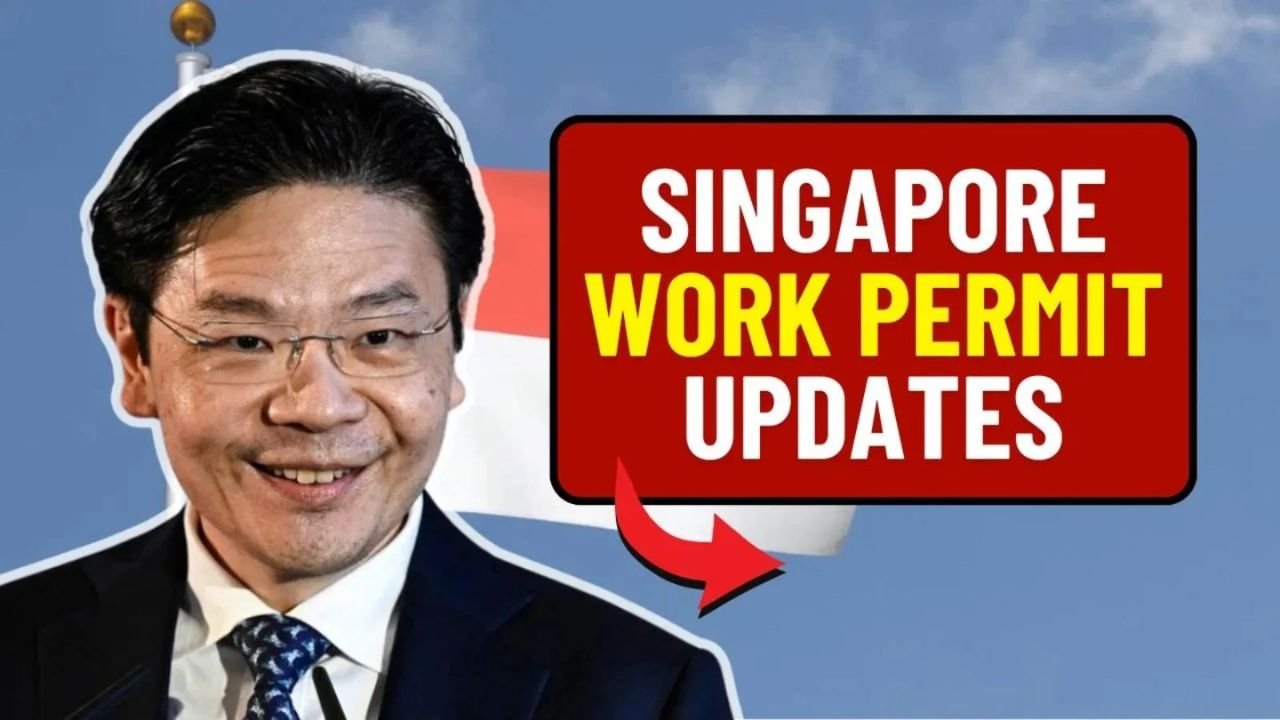Singapore is undergoing a significant transformation in labor regulations with the introduction of the Singapore Work Permit Reforms 2025. This landmark policy update marks one of the most strategic overhauls in the nation’s employment landscape. The goal? To better integrate foreign talent while protecting local jobs and maintaining Singapore’s position as a global economic powerhouse. Singapore Work Permit Reforms 2025
What Are the Singapore Work Permit Reforms 2025?
These reforms are designed to align Singapore’s workforce with future economic needs. They aim to promote fair hiring, elevate talent standards, and strengthen inclusivity. By tightening salary thresholds, enhancing evaluation systems, and enforcing ethical hiring practices, the Singapore Work Permit Reforms 2025 push both employers and job seekers to embrace higher standards.
Key Salary Threshold Changes for Employment Pass Holders
Starting January 1, 2025, Employment Pass (EP) applicants must meet a higher minimum monthly salary of SGD 5,600—up from SGD 5,000. In finance, the bar is even higher at SGD 6,200. For mid-career professionals in their 40s, salaries must reach up to SGD 10,700 to qualify. These changes affect both new applicants and current EP holders, who must comply by January 1, 2026.
S Pass Salary and Levy Adjustments
The Singapore Work Permit Reforms 2025 also target the mid-skilled workforce. Starting September 1, 2025, the minimum S Pass salary rises to SGD 3,300, and SGD 3,800 for those in finance. Employers will face a Tier 1 levy increase from SGD 550 to SGD 650. Existing S Pass holders must comply by September 1, 2026.
Also Read – These 1976 Bicentennial Quarters Could Be Worth Thousands – DON’T Spend This BICENTENNIAL Quarter!
COMPASS Framework: A Transparent Evaluation System
One of the most innovative elements of the reforms is the COMPASS framework. It evaluates EP applications based on four key areas:
- Salary Competitiveness
- Educational Qualifications
- Workforce Diversity
- Support for Local Employment
Applicants must score at least 40 points to qualify, making the process more data-driven and transparent.
Strengthening Fair Hiring Through Revised FCF
The Fair Consideration Framework (FCF) is being revamped. Employers must post jobs for at least 14 days on MyCareersFuture and must seriously consider local candidates. Documentation of hiring decisions is now mandatory. Companies ignoring qualified Singaporeans may face penalties or delays in work pass approvals.
Transition Deadlines and Employer Readiness
Phased implementation allows time for adjustment:
- Jan 1, 2025: New EP salary rules begin.
- Jan 1, 2026: Current EP holders must comply.
- Sept 1, 2025: New S Pass salary and levy rates.
- Sept 1, 2026: Full compliance for existing S Pass holders.
Employers should act now to review salaries, adjust HR policies, and prepare strategically.
Impact on Foreign Professionals and Employers
The Singapore Work Permit Reforms 2025 aim to attract top-tier talent while giving locals a fair shot. Foreign professionals will need relevant qualifications and competitive salaries. Employers must show a strong commitment to hiring fairly and nurturing local talent.
Elite Talent Still Has a Path
Singapore remains open to high-caliber professionals through specialized passes such as:
- Tech.Pass for tech leaders and entrepreneurs
- ONE Pass for globally recognized professionals earning SGD 30,000/month
- Personalised Employment Pass (PEP) for high-earning EP holders
These options ensure Singapore continues to attract global excellence.
The Road Ahead
The Singapore Work Permit Reforms 2025 are not just about stricter rules—they represent a vision for a fair, inclusive, and future-ready workforce. As businesses and professionals adapt, these reforms promise to make Singapore’s labor market more resilient, competitive, and sustainable for the long haul.
Whether you’re a jobseeker, HR leader, or policymaker, understanding and preparing for these changes is key to thriving in Singapore’s evolving employment landscape.
Some Important Link
| Telegram Group | Click Here |
| WhatsApp Group | Click Here |
| Home Page | Click Here |










